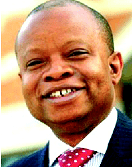
History of leadership
Leadership is a concept that has been central to human societies since the beginning of civilisation. The history of leadership is rich and complex, shaped by political, social, and economic factors, as well as cultural and psychological ones. Let us explore the history of leadership from its earliest origins to the present day.
Leadership can be traced back to the earliest human societies, where leaders emerged due to the need for coordination and organisation. In early hunter-gatherer societies, for example, leaders were often chosen based on their physical strength, intelligence, or ability to provide for the group. These leaders were responsible for organising hunting parties, allocating resources, and resolving disputes.
As societies became more complex, leadership became more specialised, with different types of leaders emerging for other purposes. For example, military leaders arose to lead armies and defend territories, while religious leaders emerged to guide spiritual practices and rituals. In many societies, leadership was closely tied to social status, with aristocrats and nobles holding positions of power and influence.
In the ancient world, many examples of great leaders left their mark on history. Alexander the Great was one of the most famous, who conquered much of the known world and spread Greek culture and ideas across Asia and Africa. Other notable leaders from this era include Julius Caesar, who transformed the Roman Republic into an empire, and Confucius, who laid the foundations for a philosophical and ethical system that would shape Chinese culture for centuries.
In the Middle Ages, leadership took on a more feudal character, with monarchs and nobles wielding power over their subjects. This period also saw the emergence of religious leaders, such as the Pope, who had enormous influence over Europe’s spiritual and political life. The Renaissance brought a renewed interest in leadership and the study of human nature, with figures such as Niccolo Machiavelli and Thomas More exploring the qualities that made for influential rulers.
The modern era has seen a further evolution in leadership, with the rise of democratic institutions and the increasing importance of individual freedom and human rights. In the 20th century, many great leaders emerged who shaped world history, including Winston Churchill, who led Britain through World War II; Martin Luther King Jr., who fought for civil rights and equality in America; and Nelson Mandela, who helped to end apartheid in South Africa.
Today, leadership continues to play a central role in shaping the course of human history. From political leaders to business executives to community organisers, those who inspire and guide others are essential to achieving meaningful change and progress. While the specific qualities and characteristics that make for effective leadership may vary, depending on the context, the history of leadership shows us that this is a fundamental aspect of human nature and society that will continue to evolve and adapt.
Difference between leadership and management
Leadership and management are often used interchangeably in everyday conversations, but the two have distinct differences. While both roles are essential for the success of any organisation, they require different skills and approaches.
Management refers to planning, organising, and controlling resources to achieve specific goals. Managers are responsible for creating and implementing plans, managing budgets, allocating resources, and monitoring performance to ensure that goals are met efficiently and effectively. Managers are often tasked with maintaining stability and predictability within an organisation.
Conversely, leadership is the ability to inspire and influence others to achieve a common goal. A leader can rally people around a shared vision, encourage them to work towards a common goal, and empower them to take ownership of their work. Leaders are often responsible for creating a sense of purpose and direction within an organisation, and they can help to guide the organisation through change and uncertainty.
One of the key differences between leadership and management is how each role motivates people. Managers often rely on extrinsic motivators, such as rewards and punishments, to boost their teams; while leaders focus on intrinsic motivators, such as purpose and meaning. Leaders are often skilled at tapping into their team members’ values and aspirations, which can help them achieve higher levels of performance and satisfaction.
Another difference between leadership and management is how they approach decision-making. Managers tend to make decisions based on data and analysis, while leaders often make decisions based on intuition and vision. While both approaches have strengths and weaknesses, skilled leaders will know when to rely on data and when to follow their intuition.
Finally, leadership and management differ in their focus. Management often focuses on maintaining the status quo and ensuring operations run smoothly, while leadership focuses on creating change and innovation. While both roles are necessary for the success of any organisation, leaders are often tasked with taking the organisation in new directions and exploring new possibilities.
Challenges and opportunities for leadership today
The challenges and opportunities for leadership today are significant and multifaceted, shaped by a complex and rapidly changing global environment. One of the biggest of these is the rapidly changing nature of work and the workforce. With the rise of automation, artificial intelligence, and remote work, leaders must adapt their leadership styles to manage increasingly diverse and geographically dispersed teams. This requires a greater focus on communication, collaboration and trust-building, as well as a willingness to embrace new technologies and work models.
Another major challenge for leaders is the growing importance of ethics and social responsibility. As organisations become more aware of their impact on the environment and society, leaders must navigate complex ethical dilemmas and balance the needs of different stakeholders. This requires a solid moral compass and a commitment to creating shared value for all stakeholders, including employees, customers, shareholders, and the broader community.
The need for innovation is another challenge and opportunity for leaders today. With the pace of change accelerating, leaders must be able to anticipate and respond to new challenges and opportunities. This requires a culture of experimentation, risk-taking, and a willingness to embrace new ideas and approaches.
The increasing importance of diversity and inclusion is another challenge and opportunity for leaders today. With the world becoming more diverse, leaders must create inclusive workplaces that celebrate differences and foster a sense of belonging. This requires a deep understanding of unconscious biases, a commitment to fairness and equity, and a willingness to challenge systemic barriers to inclusion.
Finally, the challenges and opportunities for leadership today include addressing complex global issues such as climate change, social inequality, and geopolitical instability. As these challenges become more urgent and complex, leaders must be able to work collaboratively with other organisations and stakeholders to find solutions. This requires a strong sense of purpose, a global perspective, and a willingness to take bold and decisive action.
In conclusion, the challenges and opportunities for leadership today are significant and diverse, requiring leaders to adapt and evolve their leadership styles to meet the changing needs of their organisations and the world. By embracing new technologies, fostering innovation and creativity, prioritising ethics and social responsibility, embracing diversity and inclusion, and working collaboratively to tackle global challenges, leaders can help to create a better future for all.
(Continues next edition)








